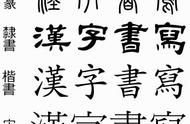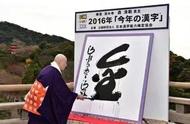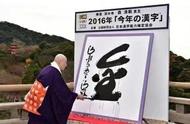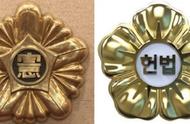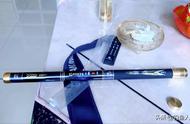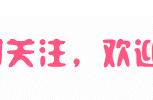Another potentially interesting fact is that some Chinese characters representing Western concepts were created in Japan and used by the Chinese. According to a (Chinese) source, about 70% of the nouns in Chinese social research subjects and scientific terms are made in Japan, such as service, organization, discipline, guidelines, policies, etc., and even the terms of science, business, canteen, etc. are also translated from Japan.
另一个可能有趣的事实是,一些代表西方概念的汉字是在日本创造的,并由中国人使用。根据一个(中文)来源,中国社会研究科目和科学术语中约70%的名词是日本制造的,如服务、组织、纪律、方针、政策等,甚至科学、商业、食堂等词汇也来自日本的翻译。

日本需要学者青野的回答
All these answers are good and helpful. I particularly like that the respondent Serina regards pseudonyms as "childhood friends who came out of a group of fearsome gangsters" - which is similar to my feeling when I was in Japan in my early years.
所有这些答案都很好,很有帮助。我特别喜欢答主Serina将假名视为“一群令人生畏的黑帮分子中走出的童年朋友”——这与我早年在日本时的感觉差不多。
Let me add: ordinary Japanese feel very close to familiar things when they see Chinese, and feel "we already know", because the basic education in junior high school and senior high school includes Chinese classic courses. These not only cover ancient Japanese literature, but also Chinese works - they must be so, because many elements of Japanese culture are derived from Chinese history, especially many words and phrases can only be explained by telling a story from ancient China.
让我补充一句:普通日本人有一种看到中文时非常亲近熟悉的东西的感觉,一种“我们已经知道了”的感觉,这是因为初中高中的基础教育包括中国经典课。这些不仅涵盖了日本古代文学,也涵盖了中国作品——它们必须如此,因为日本文化中的许多元素都源自中国历史,尤其是很多单词和短语只能通过讲述一个来自古代中国的故事来解释。
A well-known example: the common word of "conflict" is contradiction, in which the characters act in contradiction. This can be traced back to a Chinese story about a blacksmith who sold weapons and said, "This spear is too sharp. It can pierce the hardest shield!" Then, "This shield is too hard to pierce even the sharpest spear!" His customers laughed at this inherent contradiction. A famous scholar quoted this story as the most extensive logic loophole.
一个众所周知的例子:“contradiction”的常用解释词是矛盾,其中的人物做事自相矛盾。这要追溯到一个中国故事,讲的是一个卖兵器的铁匠说:“这把矛太锋利了,它能刺穿最坚硬的盾牌!”然后,“这盾牌太硬了,连最锋利的矛都刺不穿!”他的顾客嘲笑这种固有的矛盾,一位著名学者引用了这个故事,并被引用为最广泛的逻辑漏洞。

Reading the wiki article Hanzi can get more detailed information than you might want... However, the "Hanzi" system can read classical Chinese just like reading classical Japanese (although there are huge differences in grammar), which everyone must learn at school, even if they are never good at it. It is true that modern Chinese is not the same as classical Chinese, but Japanese readers do have some experience in following the unique word order.
阅读维基文章《汉字》可以获得比你可能想要的更详细的信息……但是,“汉字”系统可以像阅读古典日语一样阅读文言文(尽管语法存在巨大差异),这是每个人在学校都必须要学习的,即使他们从来都不擅长。诚然,现代汉语与古典汉语并不相同,但日本读者确实在遵循独特的语序方面有一定的经验。
By the way, a normal Japanese reading ability requires a basic stock of about 3000 Chinese characters, and more Chinese characters are added to each professional term. Chinese literacy needs about 4000, especially for majors. This is not because the number of characters is so different, but the two groups of characters do not overlap completely - some characters are common in Chinese, but have never been used in Japanese, and vice versa to some extent. In these two languages, there are still thousands of characters in theory, or they have been used in history, but now they are left to scholars and classicists for fun.
顺便说一句,正常的日语阅读能力需要大约3000个汉字的基本库存,每个专业的术语中还要加上更多的汉字。汉语识字需要4000左右,特别的专业需要更多。这并不是因为字符的数量如此不同,而是两组字符没有完全重叠-有些字符在中文中很常见,但在日语中从未使用过,在某种程度上反之亦然。在这两种语言中,理论上还有数千个字符存在,或在历史上曾被使用过,但现在留给学究和古典主义者来取乐。
Of course, everything I said is limited to written language. As other respondents said, pronunciation is another matter!
当然,我所说的一切都仅限于书面语言,正如其他回答者所说的那样,发音又是另一回事了!

海外网友Peter Yonge的回答
As a bilingual person, I can tell you at least one thing: Chinese attaches great importance to context. Sometimes, if you don't know what the other person is saying, you can't understand how to explain a sentence. Sometimes Chinese people play games with this feature. Someone told me that someone was holding a cup with a string of words written on the outside, which formed a closed loop. You can start from any role, read it and other roles in turn, and it will become a meaningful sentence. So if there are 25 characters on the cup, you can have 25 different sentences.
作为一个通晓两种语言的人,至少有一点,我可以告诉你,汉语非常注重上下文。有时,如果你不知道对方在说什么,你就无法理解如何解释一个句子。有时中国人玩的游戏都有这个特点。有人告诉我,有人拿着一个杯子,杯子外面写着一串字,这样就形成了一个闭环。你可以从任何一个角色开始,依次阅读它和其他角色,它会成为一个有意义的句子。所以如果杯子上有25个字符,你可以有25个不同的句子。
Chinese readers can generally understand a paragraph in Japanese, but the more Chinese characters, the better, because unless they are educated in Japanese, they do not know the meaning of syllables. So they may miss the negation of verbs, such as "he is really not my friend," and become "he is really my friend."
中国读者通常可以用日语大致了解一段话,但汉字越多越好,因为除非他们受过日语教育,否则他们不知道音节符号的意义。所以他们可能会错过动词的否定,比如“他真的不是我的朋友,”变成了“他真是我的朋友。”
As long as you insist on using simple vocabulary items, the two languages are usually similar, because at the beginning, Japanese borrowed Chinese characters to write, and they also borrowed a lot of technical vocabulary, products or technology names. Later, with the advance of economic and social revolution, and the leading position of Japanese in western learning, China often borrowed Japanese characters to express English or other western language vocabulary. If the Japanese have an acceptable combination of Chinese characters, why should they invent a new one?
只要你坚持使用简单的词汇项目,这两种语言通常都是相似的,因为一开始日本人借用了汉字来书写,他们还借用了大量的技术词汇、产品或技术的名称。后来,随着经济和社会革命的推进,以及日本人在西学方面处于领先地位,因此中国经常借用日语汉字来表示英语或其他西方语言词汇。如果日本人已经有了一个可以接受的汉字组合,为什么要重新发明一个新的汉字组合呢?
Modern Chinese has a lot of "pronunciation only" input, that is, they try to string Chinese characters together to form something that sounds like an English term. So you will hear Jeep's "gee poo" and Khrushchev's "Hey lou shweh foo". They did the same thing with the names of Mongolia and Manchuria in their history books. I always felt stupid, because after thinking about it for some time, I realized that it was a transliteration name, not some mysterious concept. The Japanese are also confused when they try to find out the corresponding concept of the word "MacDonald" in Chinese.
现代汉语有很多“仅凭发音”的输入,也就是说,他们试图将汉字串在一起,形成听起来像英语术语的东西。所以你会听到吉普的“gee-poo”,赫鲁晓夫的“Hey lou shweh foo”。他们在历史书中也对蒙古和满洲的名字做了同样的事情,我总是觉得很愚蠢,因为在思索了一段时间后,我才意识到这是一个音译的名字,而不是一些神秘的概念。日本人试图用中文找出“麦克唐纳”这个词语对应的概念也会感到困惑。



